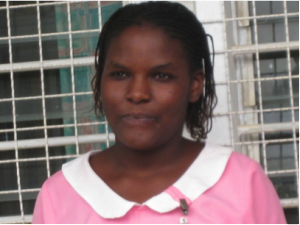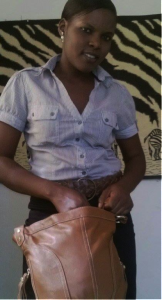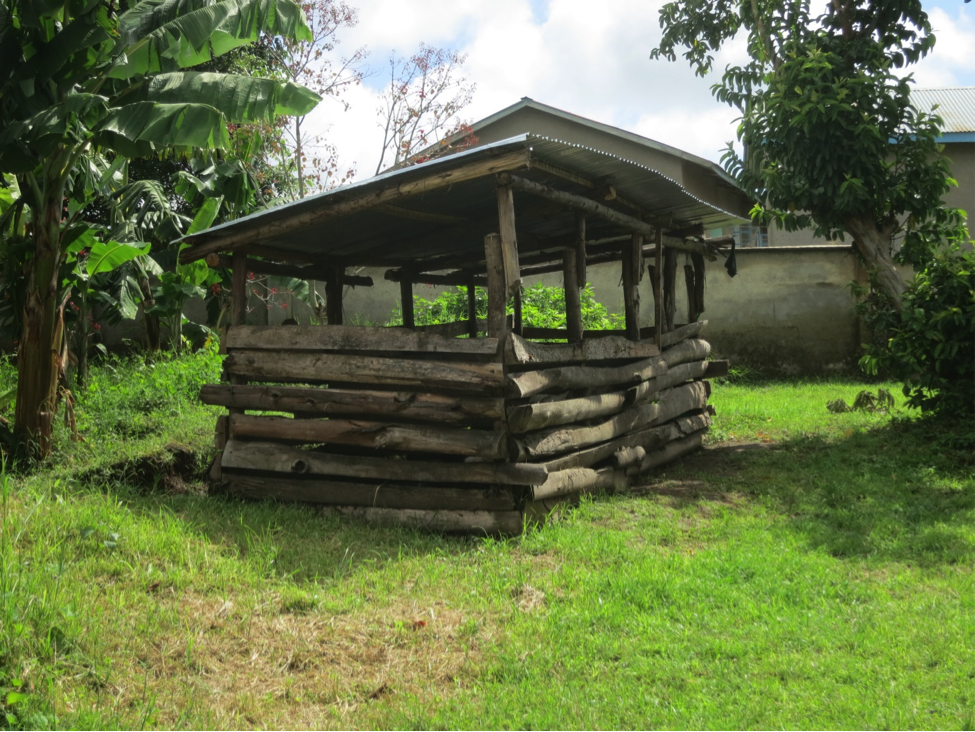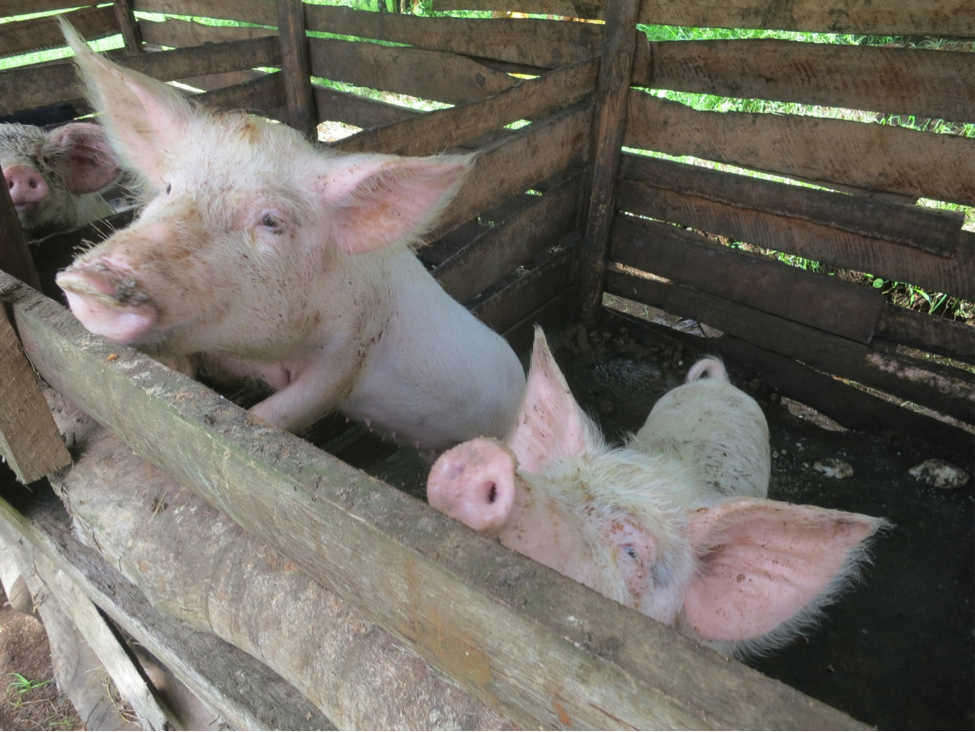Post graduation & a piggery
Dear friends,
We hope you are enjoying the summer! We want to thank all of you again for your support and encouragement over the past year.
We are excited to tell you that 12 sponsored students have graduated this year! This brings the total number of graduated students to 46. Next year 22 students are expected to graduate!!! Not one of our sponsored students has fallen by the wayside. On graduation and passing the national examination they will work as a registered nurse and registered midwife earning between $330 and $500 per month. Most of the sponsored students come from a peasant environment where family cash income is around $300/year.
It is amazing to see the transformation in these young women from the time that we first meet them to the time that they graduate. Once they obtain a job they generally support siblings in school, help their family with basic needs and medical care, and some build small homes for their families.
Some of you have asked what happens after graduation. A number of students have kept in touch and we enjoy hearing from them. In this newsletter I would like to share the story of Sarah, one of our 2011 graduates.
Sarah was born in 1988, the first born child in her

family. When she was 2-years old her father left the family. She was raised by her mother and grandparents in Iringa, who are peasant farmers. She attended school through the Ordinary Level where she followed the Science Track. She applied for nursing studies and was allowed to enroll at the KCMC School of Nursing in the fall of 2007. She told us she wanted to become a nurse so that she could help people with psychological and physical problems, and she wanted to educate people who live in the villages who have no access to education.
We met Sarah during our 2009 visit to Tanzania and agreed to sponsor her studies because of the great difficulty her mother and grandparents had in paying the school fees. I believe that Sarah in all likelihood would not have completed her studies without our financial assistance. Sarah graduated in 2011 and she has been working since June of 2012 in the fistula repair unit at the Comprehensive Community Based Rehabilitation in Tanzania (CCBRT) which is located in Dar es Salaam.
A “fistula” is an abnormal opening between two bodily organs. An obstetric fistula occurs most commonly in young pregnant women at delivery. It is the result of pressure exerted by the fetal head in the pelvis during obstructed labor, a force that interrupts the blood flow to nearby tissues in the mother’s pelvis resulting in death of tissues and “holes” forming between the two organs. An obstetric fistula can form between the vagina and the bladder and the vagina and the rectum. The practical effect is a continuous smelly discharge. These women suffer great physical and emotional trauma and are often made outcasts by family and friends.
Fistula repair requires a surgical procedure. Patients are referred to CCBRT throughout Tanzania. Sarah says she loves to work on the fistula repair unit because it is a happy place. She told us that she often purchases items of clothing for the women when they are discharged since the clothing they arrive with is usually very soiled and stained. She also gives them oil for their skin.
Here is a summary of Sarah’s role:

Educating the patient is a very important part of the nurse’s responsibilities when a patient is admitted and all throughout her stay to assure a high success rate.
On admission, tests are done to determine the extent of the fistula. While waiting for surgery the women are instructed on the importance of drinking 5 liters of water before and after surgery. Water dilutes the urine and prevents complications. If necessary, antibiotics are used if infection is present. The patient stays at least 14 days after repair of the fistula. At that time it is determined if she is dry. If the amount of residual urine in the bladder is above 50 cc she stays on the unit for an additional 5 days. If at that time the residual amount of urine is still high they are taught to use intermittent catherization at home and continue doing pelvic floor exercises.
During their stay in the hospital the women are given free treatment, food, soap, and money to cover transportation to and from the hospital.
In 2012 CCBRT incorporated holistic care of fistula patients, which includes health education, counselling, occupational therapy, physiotherapy, singing and life skills. ‘Therapeutic story telling’ is now a regular activity on the fistula ward at CCBRT.
We are so happy that Sarah is working in such a healing dynamic program. Hopefully, during one of our future trips we will be able to visit her.
Since graduation, Sarah has also helped her family. She pays college fees for one sibling who is at Mzumbe University getting a bachelor degree in public administration. Her younger brother is in secondary school and she pays his school fees. She also assists the family with basic needs since there is only her mother to care for the family and her income as a tailor is small.
We hope you have enjoyed this update on one of the young women you helped finish nursing school. Again, we thank you and wish you much success in whatever you do.
Sincerely,
Linda
Addendum: During our last visit in Tanzania we learned that the nursing school in Tukuyu had started a piggery project. The primary purpose of the project is to raise money from the sale of the pigs that can be used to buy food for the students. The piggery was built and is maintained by students. The piggery is also an outlet for kitchen waste.

